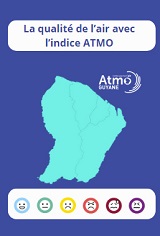Blada.com
samedi 13 décembre
Boîtes aux lettres
Courrier des lecteurs
Petites annonces
Emploi / Formation
Covoiturage
Infos citoyennes
Infos citoyennes
11/08/20
L’étude guyanaise Covisal soutenue au plus haut niveau de L’État
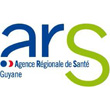 La Haute Autorité de santé a annoncé hier son soutien à la prise en charge dérogatoire du prélèvement salivaire pour la recherche du Covid-19, suite à une demande du centre hospitalier de Cayenne et de la Société française de microbiologie. Cet avis était indispensable pour que le ministère des Solidarités et de la Santé attribue le Forfait Innovation au projet du CHC. Il permettra une mise à disposition précoce pour les patients du test salivaire et aux chercheurs de poursuivre le recueil des données cliniques nécessaires à démontrer son intérêt en vue de sa prise en charge financière pérenne.
La Haute Autorité de santé a annoncé hier son soutien à la prise en charge dérogatoire du prélèvement salivaire pour la recherche du Covid-19, suite à une demande du centre hospitalier de Cayenne et de la Société française de microbiologie. Cet avis était indispensable pour que le ministère des Solidarités et de la Santé attribue le Forfait Innovation au projet du CHC. Il permettra une mise à disposition précoce pour les patients du test salivaire et aux chercheurs de poursuivre le recueil des données cliniques nécessaires à démontrer son intérêt en vue de sa prise en charge financière pérenne.

Le test METAglut1 pour le diagnostic du syndrome de déficit en transporteur de glucose. L’implant sous-rétinien Retina Implant Alpha AMS pour la prise en charge de patients souffrant de dégénérescence rétinienne périphérique sévère à profonde. Le microstimulateur implantable de neuromodulation du ganglion sphénopalatin PULSANTE pour la prise en charge de patients souffrant d’algie vasculaire de la face. Depuis sa création en 2009, seules douze produits de santé ou acte ont bénéficié du Forfait Innovation. Dans le cadre de l’essai Covisal, le test salivaire du Covid-19 pourrait être le treizième. Hier, la Haute Autorité de santé (HAS) a donné un avis favorable, indispensable pour obtenir l’accord du ministère des Solidarités et de la Santé. Le 27 juillet, le conseil scientifique du gouvernement avait déjà appelé à soutenir cet essai.
Le Forfait Innovation permet deux choses : recueillir les données manquantes pour l’essai Covisal et autorisé un accès précoce et encadré à ce test salivaire, en garantissant son remboursement par l’Assurance maladie. « C’est une phase de transition, explique le Pr Mathieu Nacher, directeur du centre d’investigations cliniques (CIC) Antilles-Guyane à l’hôpital de Cayenne. Nous n’avons pas répondu à toutes les questions sur la sensibilité, sur les meilleures indications pour faire ce test. Ce sont des choses que nous verrons plus tard. Mais dès maintenant, en analysant la littérature, ils disent que ce test à une place. Il faudra ensuite que nous allions au bout pour connaître précisément les performances du test. »
« Les tests virologiques sur des prélèvements salivaires sont évoqués comme une alternative possible aux tests virologiques sur des prélèvements naso-pharyngés car l’acte de prélèvement non invasif et indolore est susceptible d’être mieux accepté par les patients, notamment s’ils sont amenés à être testés de manière répétée, rappelle la HAS. Toutefois, de nombreuses incertitudes persistent quant à leur fiabilité. Après avoir analysé toute la littérature scientifique disponible au sujet de ces tests, la HAS considère que des éléments de fiabilité importants manquent encore pour une utilisation immédiate généralisée en alternative aux tests naso-pharyngés. » L’étude menée à Cayenne doit permettre de réunir les données pour juger de sa fiabilité. La Haute Autorité de santé sera « attentive aux premiers résultats de l'étude, afin de déclencher, le cas échéant, le processus d'évaluation pour une prise en charge généralisée, dans les indications qu'elle aura définies ».
La HAS s’est prononcée dans des délais record. « La Société française de microbiologie associée au centre hospitalier Andrée-Rosemon de Cayenne ont demandé le 6 août à la HAS d’évaluer l’opportunité d’un recours au forfait innovation pour utiliser les tests virologiques sur prélèvement salivaire. Compte tenu du besoin réel de tests plus simples pour une utilisation en dépistage et en diagnostic ambulatoire mais aussi des incertitudes fortes demeurant sur la fiabilité des tests salivaires, le Forfait Innovation apparaît en effet particulièrement adapté. La HAS rend en conséquence un avis favorable. »
« Le projet Covisal intéresse beaucoup le ministère depuis le début, en raison des problématiques autour du dépistage, souligne le Pr Mathieu Nacher. Il s’agit du premier Forfait Innovation dans le cadre du Covid-19 porté par une société savante et un centre hospitalier (…) La HAS s’appuie sur le fait que l’étude Covisal était lancée, est bien faite, bien validée et, dans ses conditions, elles se donnent les moyens de parfaire les connaissances sur les performances du test. Le but est de minimiser les délais pour que les tests puissent bénéficier au plus grand nombre, dans les conditions qui seront fixées (…) S’il y a de nouvelles méthodes de diagnostic, il faut qu’elles soient évaluées, répercutées le plus rapidement possible, et remboursées. C’est l’étude Covisal, en Guyane, qui aura aidé. »
The High Authority for Health announced yesterday its support for the derogatory coverage of saliva sampling for the search for Covid-19, following a request from the Cayenne hospital center and the French Society of Microbiology. This opinion was essential for the Ministry of Solidarity and Health to award the Innovation Package to the CHC project. It will allow early availability for patients of the saliva test and researchers to continue collecting the clinical data necessary to demonstrate its interest with a view to its long-term financial support.
The METAglut1 test for the diagnosis of glucose transporter deficiency syndrome. The Retina Implant Alpha AMS suretinal implant for the management of patients with severe to profound peripheral retinal degeneration. The PULSANTE sphenopalatine implantable neuromodulation microstimulator for the management of patients with cluster headaches. Since its creation in 2009, only twelve health products or procedures have benefited from the Innovation Package. As part of the Covisal trial, the Covid-19 saliva test may be the thirteenth. Yesterday, the High Authority for Health (HAS) gave a favorable opinion, essential to obtain the agreement of the Ministry of Solidarity and Health. On July 27, the government's scientific council had already called for support for this trial.
The Innovation Package does two things: collect the missing data for the Covisal test and allow early and supervised access to this saliva test, while guaranteeing its reimbursement by Health Insurance. "This is a transitional phase," explains Professor Mathieu Nacher, director of the Antilles-Guyana Clinical Investigation Center (CIC) at Cayenne Hospital. We haven't answered all the questions about sensitivity, about the best indications for doing this test. These are things that we will see later. But right now, by analyzing the literature, they say that this test has a place. We will then have to go to the end to know precisely the performance of the test. "
"Virological tests on saliva samples are mentioned as a possible alternative to virological tests on nasopharyngeal samples because the non-invasive and painless sampling act is likely to be better accepted by patients, especially if they are brought to be tested repeatedly, recalls the HAS. However, many uncertainties persist as to their reliability. After having analyzed all the scientific literature available on these tests, the HAS considers that important elements of reliability are still lacking for immediate generalized use as an alternative to nasopharyngeal tests. "The study conducted in Cayenne should enable the data to be gathered to judge its reliability. The High Authority for Health will be "attentive to the first results of the study, in order to trigger, if necessary, the evaluation process for generalized care, in the indications it will have defined".
The HAS delivered a decision in record time. "The French Society of Microbiology associated with the Andrée-Rosemon hospital in Cayenne asked HAS on August 6 to assess the advisability of using the innovation package to use virological tests on saliva samples. Taking into account the real need for simpler tests for use in screening and outpatient diagnosis but also the strong uncertainties remaining on the reliability of saliva tests, the Innovation Package appears to be particularly suitable. The HAS therefore issues a favorable opinion. "
“The Covisal project has been of great interest to the ministry from the start, because of the issues surrounding screening,” emphasizes Professor Mathieu Nacher. This is the first Innovation Package within the framework of Covid-19 carried by a learned society and a hospital center (...) The HAS is based on the fact that the Covisal study was launched, is well done, well validated and , under these conditions, they provide themselves with the means to perfect knowledge of the performance of the test. The goal is to minimize delays so that the tests can benefit as many people as possible, under the conditions to be set (…) If there are new diagnostic methods, they must be evaluated and passed on as quickly as possible. possible, and reimbursed. It was the Covisal study in French Guiana that helped. "
Raccourcis
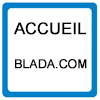
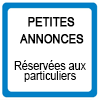
passer une petite annonce
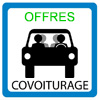
passer une annonce de covoiturage
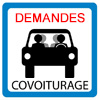
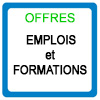
passer une annonce d’emploi
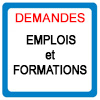
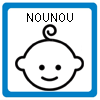
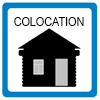
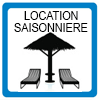
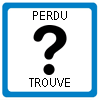
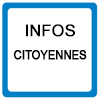
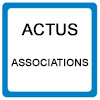
associations, postez vos actualités
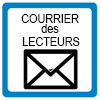
participez au courrier des lecteurs
La Guyane c’est ici
La qualité de l’Air avec
ATMO
Photothèque

Lancements 2022
Vol 259 Ariane 5



